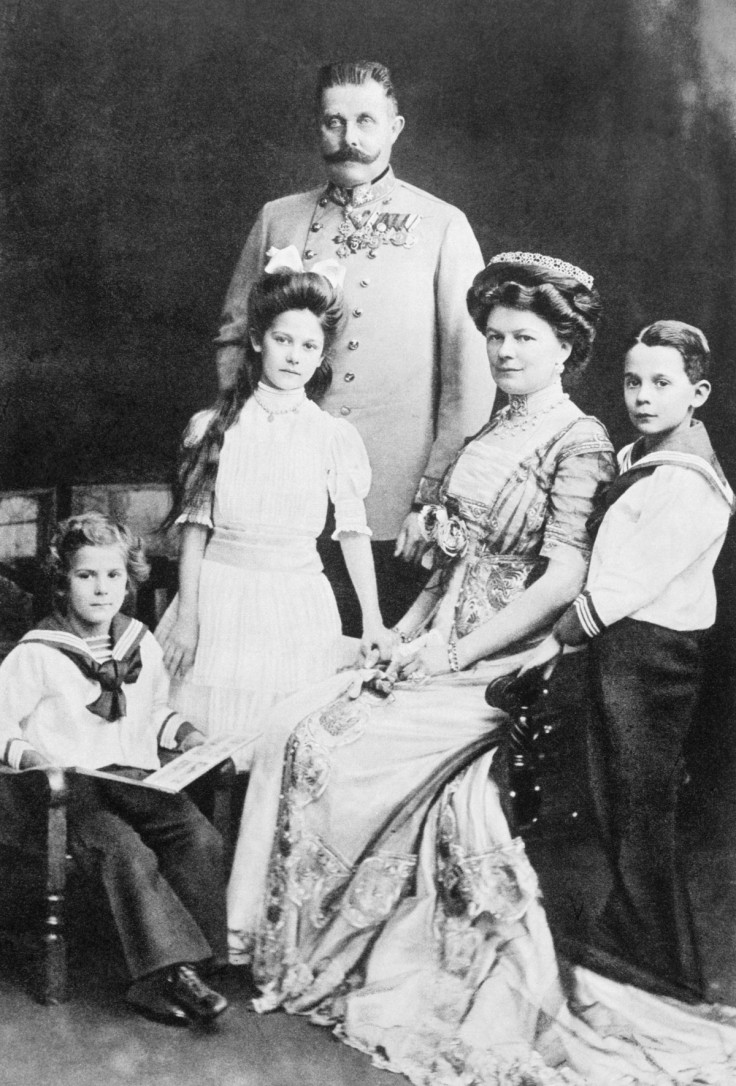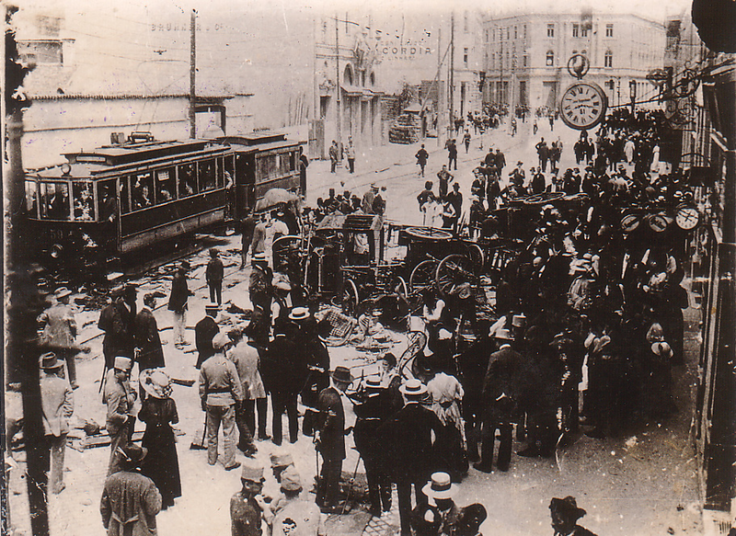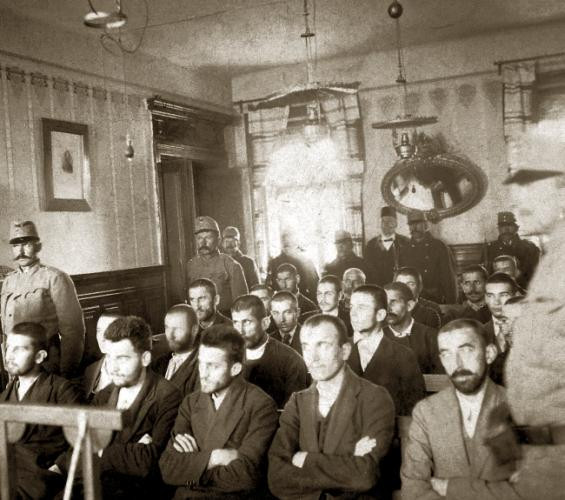Franz Ferdinand Assassination: 100-Year Anniversary of Event That Sparked World War I

It is exactly 100 years since Archduke Franz Ferdinand was assassinated, setting in motion a chain of events that would lead to World War One and the deaths of 37 million people.
Ferdinand was shot dead on 28 June, 1914 in Sarajevo by Gavrilo Princip, one of six assassins. His death directly led to Austria-Hungary declaring war in Serbia, which then dragged in the two countries' various allies, including Britain and Germany.
However, few people today realise the significance of his death. A survey by The Times WWI Centenary Facsimile found that 18% of Brits think the UK became involved in the conflict to stop Hitler and the Nazis.

While 69% of people know Franz Ferdinand was the Archduke of Austria-Hungary, just over half knew that Britain became involved in the war because of a treaty which obligated it to defend Belgium in the event of an attack.
But what were the events that led up to Ferdinand's assassination?
Sarajevo, in Bosnia, had been annexed by Austria-Hungary in 1908. Bosnians wanted to separate and join Serbia, and tensions mounted for another six years.
In 2014, Ferdinand, the heir to the throne, was visiting to insect the army with his wife. They arrived by train and were then driven along Appel Quay.
The assassins first tried to kill him with a bomb that was thrown at the car. The assassin was arrested and Ferdinand decided to abandon the visit and return home by a different route – something his driver was never told.

As he drove along the original route, he was told to turn around. The car stopped right in front of Princip who had thought the plan had failed. Princip took out his gun and shot Ferdinand in the head, hitting him in the jugular vein. Ferdinand's wife Sophie was also shot and killed.
Within six weeks powers across Europe had descended into war, with Austria-Hungary joined by Germany and Italy, and the Serbia joined by Russia and its allies, France and Britain.
While Ferdinand's assassination is seen as the catalyst for WWI, many other causes have been cited as catalysing the war. Most historians agree that the war resulted from nationalism, imperialism, militarism and alliances.
Princip was arrested and stood trial for the assassination. He was too young to be given the death penalty, at 19 years old, and was instead sentenced to 20 years in jail. He died from tuberculosis on 23 April, 1918, just a few months before the end of the war.
© Copyright IBTimes 2025. All rights reserved.




















